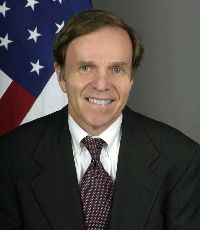Establishing peace in ethnic areas will be the most difficult challenge looking ahead in Burmese politics, a high U.S. human rights official said on Tuesday.

Michael Posner, the assistant secretary of state for democracy, human rights and labor, in a speech to the U.S. National Endowment for Democracy, said the “most important and most difficult remaining challenge is the need to end violence in ethnic minority areas and to advance an inclusive, meaningful dialogue leading towards genuine national reconciliation.”
Ultimately the ethnic violence in Burma is rooted in political causes, he said, and it will require extensive negotiated political solutions on both sides to address the underlying grievances.
“In the coming months and years we must steel ourselves for challenges that will inevitably come with this transition,” he said.
“Over the years, it’s my observation that when ossified societies begin to loosen up, the process is neither smooth nor linear.”
He said that “where Burma goes from here will depend on the political will of its leaders and the willingness of the government’s opponents to engage. And this political will needs to flow from two directions – from the top down, and from the bottom up.”
Posner said President Thein Sein and his advisors have created “a kind of top-down reform process.”
“To make Burma a home for all of its people requires broad, grassroots engagement by the widest possible range of politically active citizens,” he said.
Diverse civil groups in all areas will need to push for structural changes from the bottom up, “at the same time as the political leadership works to push reform from the top down.”
He said the project of reforming the system from within is immense. “It will require both political will from the top down and dynamism from the bottom up. Those who have profited from power in every country are often resistant to sharing it, and thus a backlash is always possible.”
The move to democracy will take time and much effort, he said, and the U.S. will “seize the opportunities to support the people, and especially politically active civil society, to pursue real, sustainable reforms from within.”
Ultimately, he said he was optimisitic because of opposition leader Aung San Suu Kyi. “Her country is fortunate to have a leader of her principles and her caliber to inspire and guide it through these tumultuous times,” he said.


